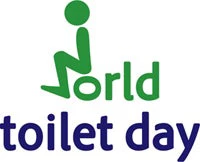
At the Water Summit held in Budapest on October 8 this year, UN Secretary-General Ban Ki-Moon called for action on the urgent issue of sanitation to underpin human dignity and health, noting that “It is plain that investment in sanitation is a down-payment on a sustainable future. Economists estimate that every dollar spent can bring a five-fold return.”
The most commonly accepted solution for urban sanitation is piped sewerage with centralized wastewater treatment. And many engineers, politicians and city managers regard it as the only legitimate solution. However, many urban dwellers in developing countries (in Sub-Saharan Africa, often more than 90%) have no access to a sewer system, or the running water needed to make it work. And they won’t be able to afford these services any time soon. Sewerage is provided almost exclusively to the better-off while poor people have mostly been left to fend for themselves. They improvise “on-site” systems such as septic tanks or pit latrines, which may be illegal under local by-laws, and are often shared with other families. Those who cannot even do this are reduced to defecating in the open or into a plastic bag (a “flying toilet”).
Latrine pits and septic tanks need to be emptied periodically, as the densely built urban environment won’t allow new pits to be dug every time they fill up. Residents may resolve this by allowing their toilets to overflow, or resort to manual pit emptying. And once collected, the sludge is often dumped illegally into urban watercourses, open drains and rivers. Thus the urban environment ends up awash in untreated human waste, with severe public health and environmental consequences, not only for those with inadequate sanitation, but for everyone else too.
What does this mean for the future? The costs and operational challenges of expanding, operating and maintaining conventional sewage systems for all the developing world’s cities would by far outstrip the technical, financial and water resources available. So if we are to heed the UN Secretary-General’s call to make a down payment on our sustainable future, we need to develop better sanitation solutions, especially for the poor communities who most need them, to safeguard the entire urban environment where most of us now live, work and play.
An important part of that innovation will be to develop better on-site, non-networked sanitation solutions. The World Bank’s Water and Sanitation Program and the Bill & Melinda Gates Foundation are working to develop innovative solutions that can be applied at scale in the world’s rapidly growing cities. We are developing tools to assess the generation of fecal sludge, the pathways it takes from containment to disposal, and the constraints to establishing an effective chain of services to manage it. In addition, we are developing new pit emptying and waste treatment technologies and sustainable business models to apply them. It’s not rocket science, but it is a transformative innovation that will make a tremendous contribution to improving the lives of billions of people today and generations in the future.
November 19 marks the first official UN World Toilet Day. Learn more on Twitter with the hashtag #worldtoiletday.
This post also appeared on Impatient Optimists.



Join the Conversation